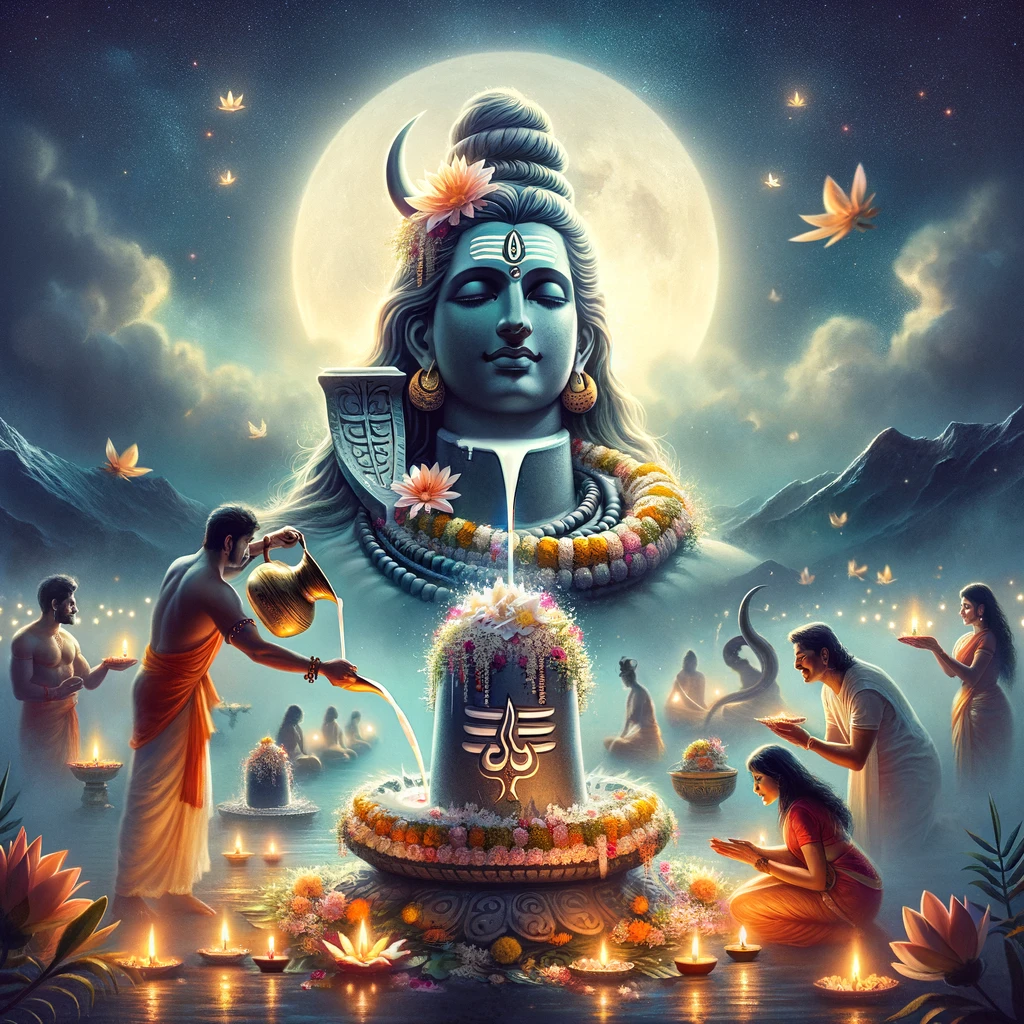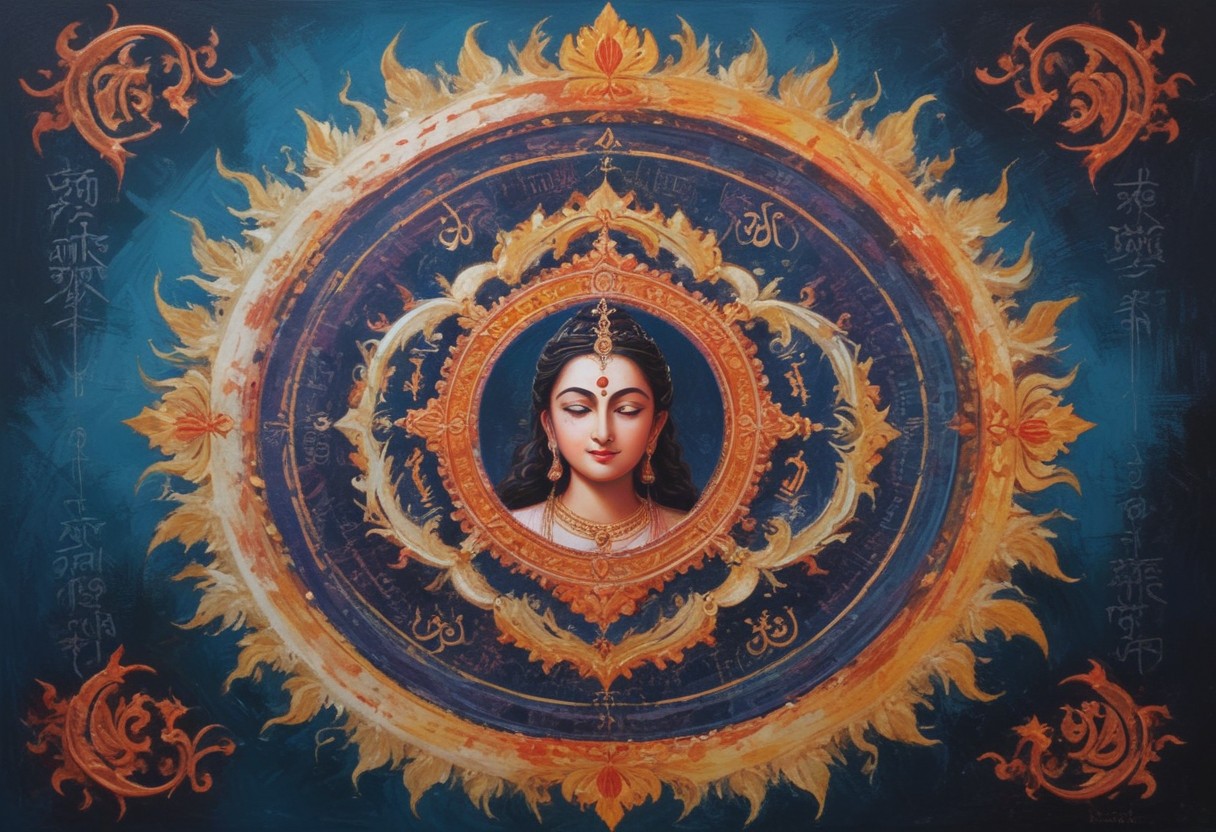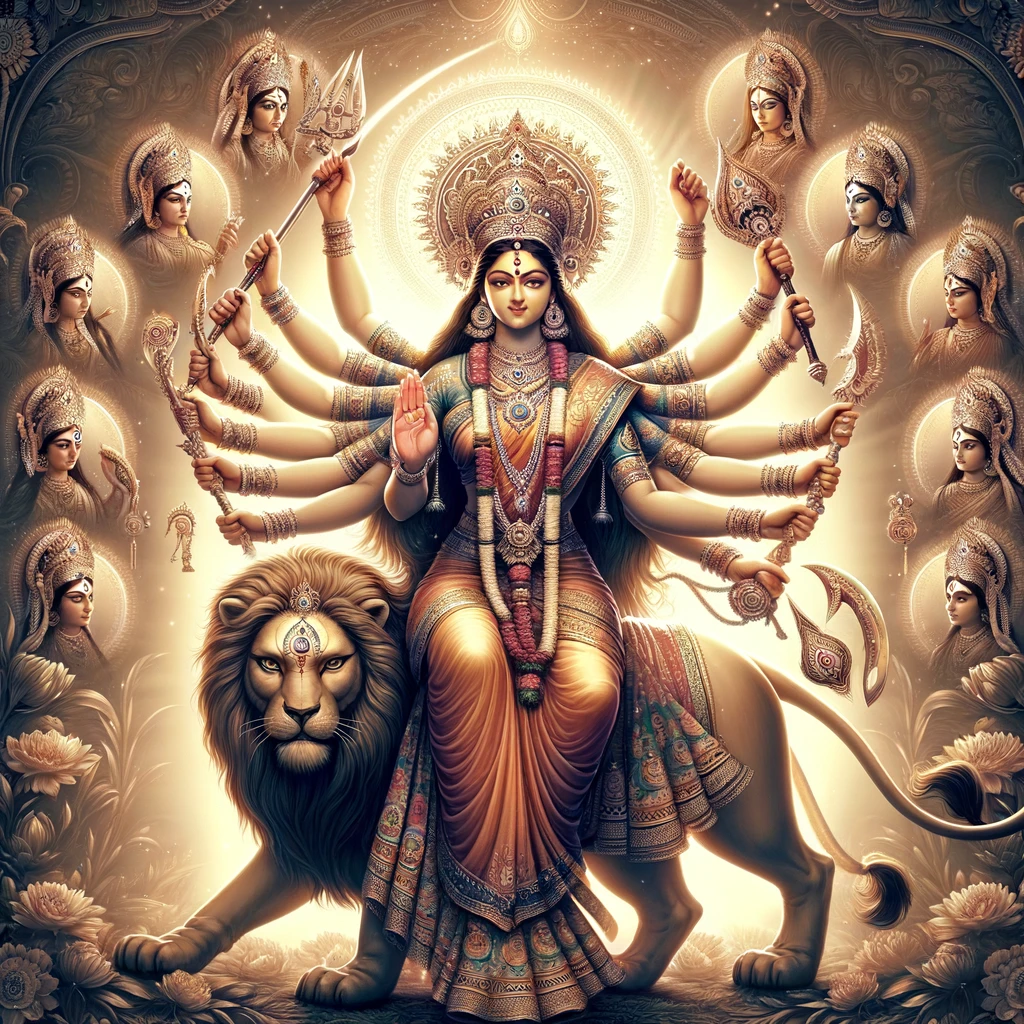
The Maha Mrityunjaya Mantra, also known as the “Death Conquering Mantra,” is one of the most powerful and revered mantras in Hinduism. It is dedicated to Lord Shiva and is believed to possess immense spiritual energy that can bring healing, protection, and longevity. This mantra is often chanted to ward off untimely death, overcome obstacles, and achieve spiritual enlightenment.
What is the correct Mahamrityunjaya Mantra?
The Maha Mrityunjaya Mantra is as follows:
ॐ त्र्यम्बकं यजामहे सुगन्धिं पुष्टिवर्धनम्।
उर्वारुकमिव बन्धनान्मृत्योर्मुक्षीय माऽमृतात्।।
Maha Mrityunjaya Mantra English Lyrics :
Om Tryambakam Yajamahe Sugandhim Pushtivardhanam
Urvarukamiva Bandhanan Mrityor Mukshiya Maamritat
Meaning of the Mantra
The mantra can be broken down into parts to understand its profound meaning:
- Om: The universal sound, representing the divine presence.
- Tryambakam: Refers to the three-eyed Lord Shiva.
- Yajamahe: We worship, adore, honor.
- Sugandhim: Sweet fragrance.
- Pushtivardhanam: Bestower of nourishment and strength.
- Urvarukamiva: Like a cucumber (just as a cucumber is effortlessly separated from the vine).
- Bandhanan: From bondage (of worldly attachments).
- Mrityor: From death.
- Mukshiya: Liberate us.
- Maamritat: Not from immortality (grant us eternal life).
Historical Significance
The Maha Mrityunjaya Mantra finds its origins in the Rigveda, one of the oldest sacred texts in Hinduism. It is mentioned in the Rigveda (7.59.12) and later in the Yajurveda (3.60). This mantra has been revered through the ages for its ability to invoke the grace of Lord Shiva and provide spiritual, mental, and physical well-being.
What are the Benefits and power of Maha Mrityunjaya Mantra?
- Healing and Health Benefits:
- The mantra is known to have therapeutic effects on the mind and body.
- Regular chanting is believed to help in curing diseases and maintaining good health.
- It boosts the immune system and enhances physical vitality.
- Protection and Safety:
- It provides a protective shield against negative energies and evil forces.
- The mantra is often chanted during times of crisis to seek divine protection.
- Longevity and Immortality:
- Chanting the mantra is said to prolong life and prevent untimely death.
- It is often recited for someone who is seriously ill or in danger.
- Mental Peace and Emotional Stability:
- The vibrations of the mantra bring mental peace, reducing stress and anxiety.
- It helps in achieving emotional stability and a balanced state of mind.
- Spiritual Growth and Enlightenment:
- The mantra is a powerful tool for spiritual awakening and self-realization.
- It aids in connecting with the divine consciousness and achieving higher states of meditation.
How to Chant the Maha Mrityunjaya Mantra
Preparation
- Purification:
- Before chanting, take a bath and wear clean clothes.
- Create a peaceful and clean environment for chanting.
- Sacred Space:
- Set up a small altar with a picture or idol of Lord Shiva.
- Light a lamp (diya) and incense to purify the surroundings.
- Offerings:
- Offer flowers, fruits, and water to the deity as a mark of respect and devotion.
The Chanting Process
- Seating and Posture:
- Sit in a comfortable position, preferably on a mat or asana.
- Keep your spine erect and hands in a mudra (gesture) of your choice.
- Focus and Intention:
- Close your eyes and take a few deep breaths to center yourself.
- Set a clear intention or sankalpa for chanting the mantra.
- Recitation:
- Begin chanting the mantra slowly and clearly, focusing on each word and its meaning.
- It is recommended to chant the mantra 108 times, as this number is considered auspicious in Hinduism.
- Use a mala (rosary) with 108 beads to keep count.
- Concentration:
- Maintain a steady rhythm and pace while chanting.
- Focus on the vibrations and the divine energy of the mantra.
- Closing:
- After completing the chanting, sit quietly for a few minutes, absorbing the positive energy.
- Offer a prayer of gratitude to Lord Shiva for his blessings.
Can we chant Maha mrityunjaya Mantra 11 times?
Yes, you can chant the Mahamrityunjaya Mantra 11 times. While the traditional practice often involves chanting mantras 108 times, which is considered a sacred number in many spiritual practices, reciting the mantra 11 times is also permissible and can be beneficial.
Maha mrityunjaya Mantra Daily Practice
Incorporating the Maha Mrityunjaya Mantra into your daily routine can bring about significant positive changes in your life. Here are some tips for a regular practice:
- Morning Chanting:
- Start your day by chanting the mantra to set a positive and protective tone.
- It helps in clearing the mind and preparing for the day ahead.
- Evening Chanting:
- Chant the mantra in the evening to release stress and negative energies accumulated throughout the day.
- It aids in achieving a peaceful state before sleep.
- Special Occasions:
- Chant the mantra during important life events, such as birthdays, anniversaries, or new beginnings.
- It invokes divine blessings and ensures success and prosperity.
Vidhi (Ritual) for Maha Mrityunjaya Havan
Performing a havan (fire ritual) with the Maha Mrityunjaya Mantra is a powerful way to amplify its benefits. Here is a step-by-step guide:
Preparation
- Sacred Space:
- Choose a clean and quiet place for the havan.
- Set up a small havan kund (fire pit) with all the necessary items.
- Offerings:
- Gather the offerings, including ghee (clarified butter), samidha (sacred wood sticks), and havan samagri (herbal mixture).
- Keep flowers, fruits, and water for additional offerings.
The Ritual
- Invocation:
- Begin by invoking Lord Ganesha to remove any obstacles.
- Chant the Ganesh mantra and offer flowers and incense.
- Setting the Fire:
- Light the havan kund and make sure the fire is steady.
- Offer ghee and samidha to kindle the flames.
- Chanting and Offerings:
- Start chanting the Maha Mrityunjaya Mantra.
- With each chant, offer a small amount of ghee and havan samagri into the fire.
- Continue this process, maintaining a rhythm and focus on the mantra.
- Closing:
- After completing the chanting, offer a final prayer of gratitude.
- Sprinkle water around the havan kund and on yourself as a symbol of purification.







